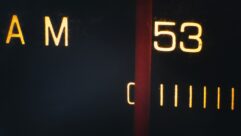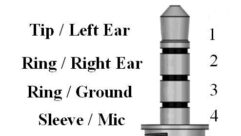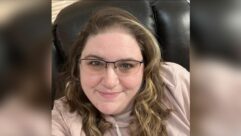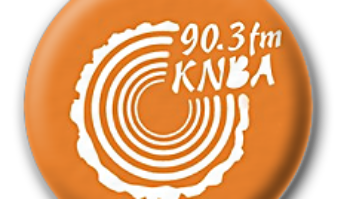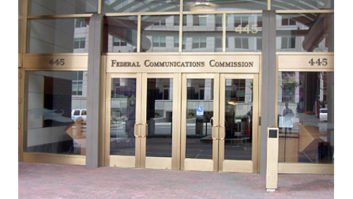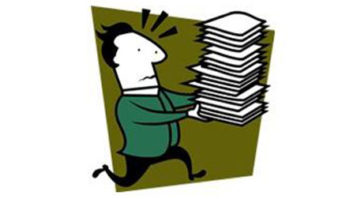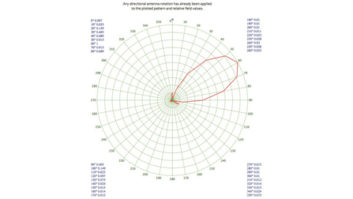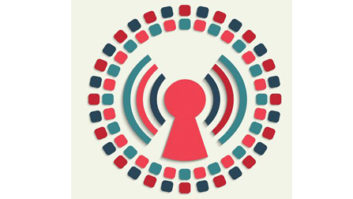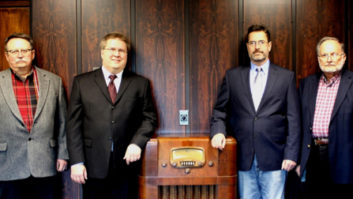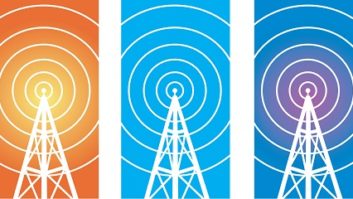The FCC announced the dates for the upcoming window for the filing of new FM translator applications to be associated with AM stations: The filing window opens on July 26 and closes at 6 p.m. on Aug. 2. The window is limited to those Class C and Class D AM stations that did not participate in the 2016 filing windows.
By way of background, the commission adopted rules in 2015 to permit AM stations to rebroadcast their signals on FM translator stations so long as the FM translator signal remained within the primary service contour of the AM station. In 2016, the FCC opened two filing windows. The first permitted Class C and Class D AM stations to acquire existing FM translator authorizations and move them up to 250 miles. The second extended these rights to all AM stations, so long as they had not participated in the first filing window. Overall, applications to move more than 1,000 FM translators were filed in 2016.

Now that the dust has settled on moving existing FM translators, the FCC will permit AM licensees to file for new FM translator authorizations where there is available spectrum. The process is fairly straight forward, but a quick overview of the process will help avoid tripping over the start line.
Allocation considerations that will allow for a vacant channel are not readily met in each community holding AM licenses that wish to apply for a translator. Indeed, in many circumstances, there will be more than one AM licensee interested in an available vacant FM channel.
For this reason, the commission will make AM licensees file two different applications: The FCC Form 175 auction application, along with a slimmed-down version of the FCC Form 349 construction permit application. The FCC Form 349 provides the �Tech Box� engineering information needed by the Media Bureau for it to determine whether there are conflicting applications that will proceed to auction. The FCC Form 175 will be used in the case of mutually-exclusive applicants that are unable to resolve their engineering conflicts through settlement or minor change amendments to their technical proposal. Both applications are required to be filed during the filing window.
For the FCC Form 349, applicants will need to identify the AM station to which the FM translator will be associated. Assuming the FM translator is authorized and constructed, the FM translator is required to remain associated with that AM facility and may only be assigned to a third party if the AM station is sold as well.
A licensee may only file for one new FM translator facility of an associated AM station, but if the licensee owns more than one AM station, they are permitted to submit separate FM translator application, so long as they identify different AM stations in the Tech Box.
The FCC Form 175 is the standard form used for FCC auctions. In addition to listing the applicant�s name and authorized bidders, it requires the listing and the identification of ownership interests of 10 percent or more in the applicant, including stock, limited partnership interest, LLC membership interests, and any party holding an indirect ownership interest of 10 percent or greater in the applicant. The FCC Form 175 also permits the applicant to claim New Entrant Bidding credit for those licensees with limited other media interests, and it requests the disclosure of any joint bidding arrangements or other agreements relating to the FM translator application. Finally, the FCC Form 175 requires that applicants cross-reference their FCC Form 349 engineering proposals by providing the CDBS filing number(s).
Once the window closes, and the FCC confirms that it has received a complete FCC Form 175, the Media Bureau�s engineers will run studies to determine which proposals can be granted immediately because they do not conflict with other proposals. Conflicting proposals will be released on a public notice, which will trigger a limited window for settlement agreements, dismissal requests, and minor change amendments.
Over the years, applicants filing in previous filing windows have run into problems when the engineering information contained in the Tech Box was not accurate. Therefore, all applicants should double-check their proposals prior to submission to confirm their accuracy.
Another road-block is for noncommercial licensees that indicate in their auction applications that they will be operating the station as a noncommercial facility. The FCC is not permitted to auction noncommercial facilities, so applicants that indicate noncommercial operation run the risk of being dismissed if their applications are mutually-exclusive with commercial FM translator proposals.
The FCC has pledged to open one last filing window for all AM licensees that had not participated in the first three filing windows. The date for that filing window will be set after the FCC has received and processed the applications filed in the upcoming window.
Petro is of counsel at Drinker Biddle & Reath LLP. Email: [email protected].


